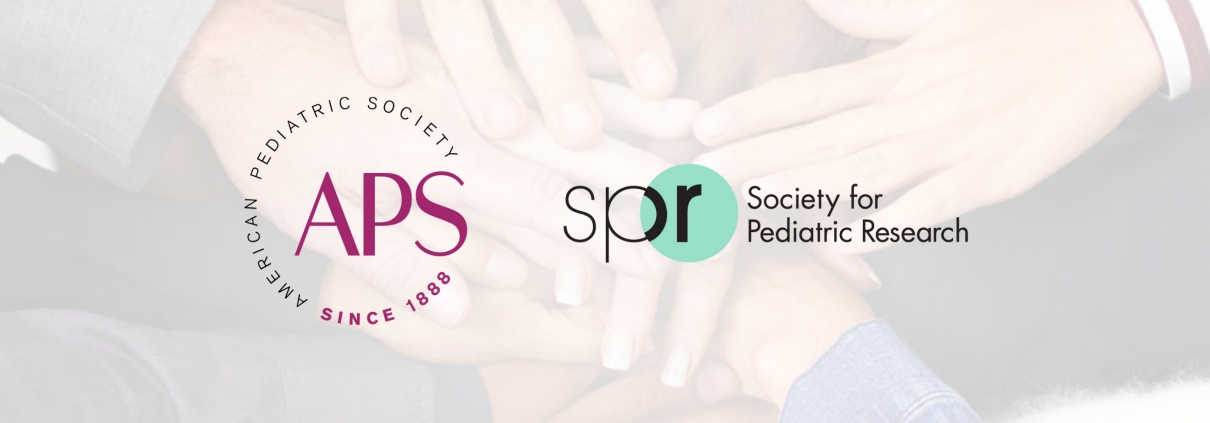Pediatric Policy Council Update
The APS and SPR are members of the Pediatric Policy Council (PPC) which actively advocates for children and academic pediatrics at the federal level. APS representatives to the PPC are Drs. DeWayne Pursley and Jonathan M. Davis; Drs. Joyce Javier and Shetal Shah represent the SPR.
The PPC also includes representatives from the Academic Pediatric Association (APA) and the Association of Medical School Pediatric Department Chairs (AMSPDC). The PPC is based in the Washington DC office of the American Academy of Pediatrics (AAP), who supplies staff and other support.
The latest advocacy developments are summarized by the PPC below
PPC CAPITOL CONNECTION
April 7, 2020
What Matters Now in Washington:
- Congress quickly passed two massive pieces of legislation as the COVID-19 pandemic spreads around the country. More…
- The third coronavirus response package reauthorized the Pediatric Subspecialty Loan Repayment Program, a victory for academic pediatricians after years of work to renew the program. More…
- The NIH recently announced a trial of a potential coronavirus vaccine had launched in record speed. More…
- The NIH outlined flexibilities available to grantees in light of constraints posed by COVID-19. More…
- The NIH is accepting proposals for gun violence prevention research. More…
In the midst of national emergency, Congress acts quickly to speed resources to families and health care providers. Congress has taken unprecedented action over the last several weeks as the COVID-19 pandemic continues to spread rapidly throughout the United States. While lawmakers have been grappling with a wide range of policy issues, legislative efforts to date have focused on mitigating the impact of the coronavirus on human health and the economy.
—Congress Strengthens Key Federal Programs as Families Face COVID-19 Pandemic. The Families First Coronavirus Response Act (H.R. 6201) was signed into law on March 18, after passing Congress by wide bipartisan margins. The $100 billion legislation provided resources to shore up critical federal and state programs as families grapple with the immediate fallout of the public health crisis. The legislation expanded emergency paid sick and family medical leave on a temporary basis, provided states resources to improve unemployment insurance programs, and expanded key nutrition programs like the Supplemental Nutrition Assistance Program and school meals. The legislation also requires public and private insurers to cover the costs of COVID-19 testing, which is seen as key as the federal government aims to expand access to testing to diagnose and better control the virus. Additionally, the bill increased the federal government’s contribution to state Medicaid programs on a temporary, emergency basis—an additional 6.2 percent on top of the federal government’s current matching rate for each state.
—$2 Trillion Relief Package Sends Money to Pandemic Response Frontlines. Just a week later, Congress acted to pass the largest relief bill in U.S. history. The Coronavirus Aid, Relief, and Economic Security (CARES) Act (H.R. 748) is a nearly $2 trillion package to provide direct relief to the health care system, families, and businesses. The bill contains several key provisions for academic pediatricians and the broader health care community. $100 billion will be distributed directly to hospitals—which have been struggling with a surge of patients seeking care for COVID-19, including critical care for the most severe cases—for the purchase of additional personal protective equipment (PPE), testing supplies, increased workforce training, emergency operation centers, and more. It also includes funds to replenish the Strategic National Stockpile with critical medical supplies. The bill directs nearly a billion dollars to the National Institutes of Health for research, much of which will be funded through the National Institute of Allergy and Infectious Diseases, into COVID-19. Separately, the bill includes $80 million for the Food and Drug Administration’s response to COVID-19, including funds for medical countermeasures, therapies, vaccines, and research.
The CARES Act also injects $150 billion into state and local budgets as they ramp up public health efforts to address COVID-19 while tax revenues plummet. The federal government will also pay an additional $600 per week to unemployment insurance beneficiaries and make direct payments of $1,200 to many Americans. Hard-hit industries, such as the airline industry, will receive bailouts while small businesses will have access to billions of dollars in grants to keep employees on payroll.
For more information, take a look at detailed summaries of the Families First Coronavirus Response Act and the Coronavirus Aid, Relief, and Economic Security (CARES) Act from the AAP.
Congress Moves on Pediatric Priorities in Latest Relief Package. After years of advocacy from the academic pediatric community, Congress acted to reauthorize the Pediatric Subspecialty Loan Repayment Program (PSLRP) in its most recent COVID-19 relief legislation. The provision—which was signed into law with the rest of the legislation last week—mirrors a proposal from the Senate Health, Education, Labor & Pensions (HELP) Committee that sought to renew the program for 5 years with no policy changes. Legislators opted to include an open-ended funding authorization rather than indicating a specific amount for appropriators to spend, instructing congressional appropriators to spend “such sums as may be necessary” to fund the program. Earlier this month, the PPC joined with 50 organizations to urge Congress to provide funding for this program in the upcoming fiscal year, and the newly secured authorization for PSLRP will bolster these ongoing efforts. The legislation also included long-sought changes to the FDA’s over-the-counter drug approval process, strengthening FDA’s ability to require conditions for packaging based specifically on preventing harm to children.
NIH Begins Coronavirus Vaccine Clinical Trial. An NIH-funded Phase 1 clinical trial of an investigational vaccine to protect against COVID-19 began on March 16. The Seattle-area trial will evaluate different doses of the experimental vaccine for safety and efficacy and will enroll 45 healthy adults. The vaccine was developed jointly by NIH scientists and collaborators at Moderna, Inc, a Massachusetts based biotechnology company. According to National Institute of Allergy and Infectious Disease Director Anthony Fauci, MD, the Phase 1 trial was launched in record speed and is an important first step toward the development of a vaccine that is protective against COVID-19 infection.
NIH Posts Notices on CLINICAL Trials, funding, Animal Care Impacted by Coronavirus. The NIH posted guide notices outlining the flexibilities available to recipients conducting NIH-funded clinical trials and human subject studies that have been impacted by coronavirus.
- Guidance for NIH-funded Clinical Trials and Human Subjects Studies Affected by COVID-19
- Flexibilities for Assured Institutions for Activities of Institutional Animal Care and Use Committees (IACUCs) Due to COVID-19
NIH Accepting Proposals for Firearm Injury and Mortality Prevention Research. The NIH released two announcements detailing opportunities for gun violence prevention research funding. A March 10 funding opportunity announcement outlined priority research topics for R61 clinical trial optional proposals. A separate notice of special interest on March 20 announced opportunities for competitive revision applications to support the expansion of existing R01 and R21 programs well poised to expand their focus to include firearms research.

